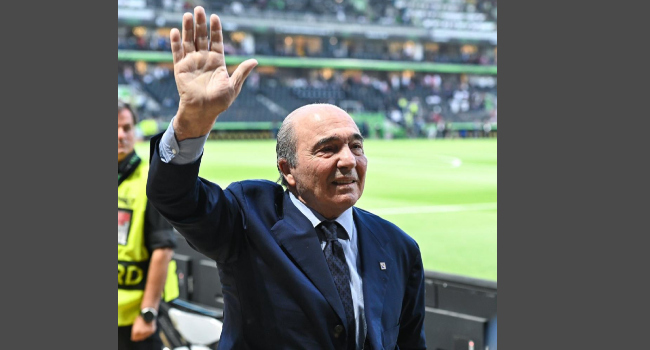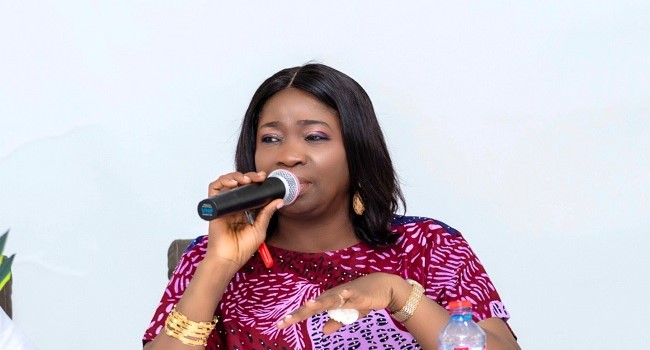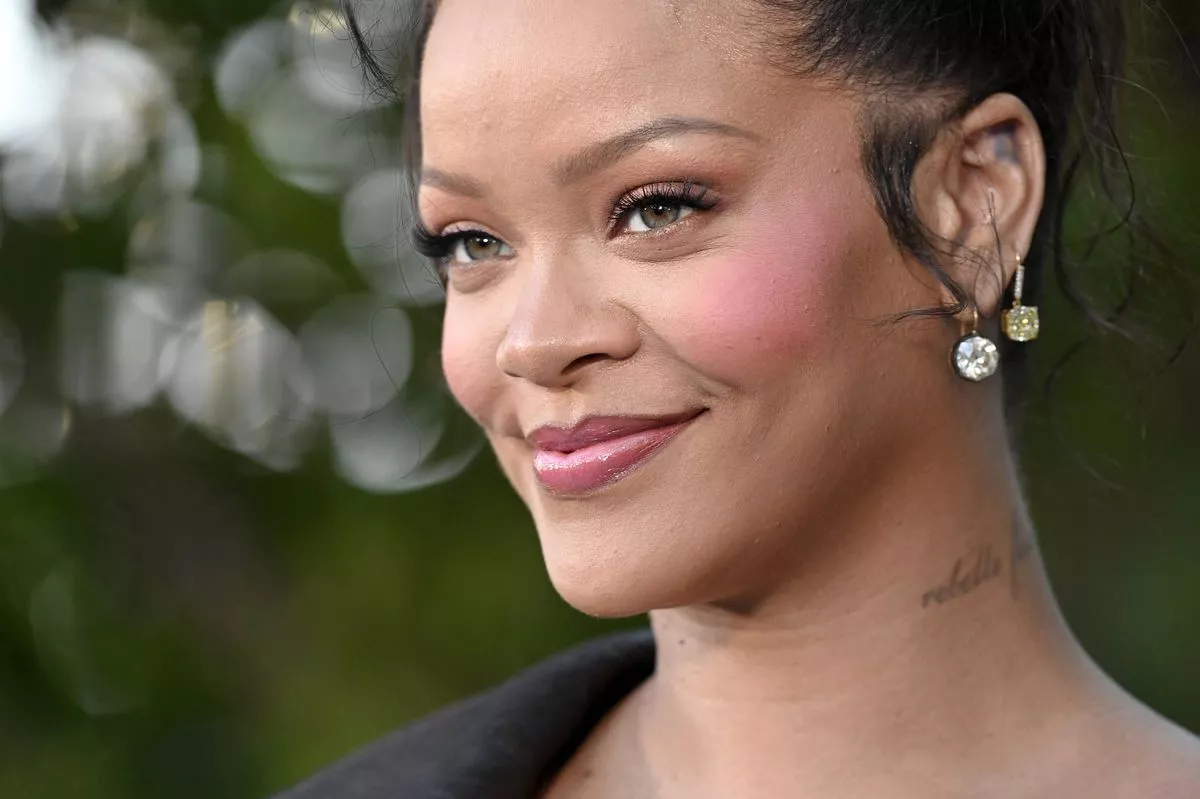Syria live news: Army takes control of Deir Hafer, Maskana as SDF pulls out




ACF Fiorentina President, Rocco Commisso, has died at the age of 76.
The Italian club announced in the early hours of Saturday, saying he died after a prolonged period of medical treatment.
Fiorentina confirmed Commisso’s passing in a statement published on its website, describing it as a painful loss for his family, the club, and the wider football community.
The statement read, “After a prolonged period of medical treatment, our beloved President has left us, and today we all mourn his passing.
“For his family, he was an example and a guiding light, a loyal and faithful man who, alongside his wife Catherine, reached the milestone of 50 years of marriage, and who was a strict yet loving father to his children, just as his character was: gentle and determined.”
The club noted that he and his wife had been married for 50 years, describing him as a devoted family man and a guiding figure to those around him.
According to the statement, the American-Italian businessman took over Fiorentina seven years ago, during which time he became closely identified with the club, its supporters, and the city of Florence.
It said under his leadership, Fiorentina reached two UEFA Conference League finals and one Coppa Italia final.
Football, the club said, was one of Commisso’s greatest passions, and Fiorentina became central to his life following his takeover of the Viola.
He was known for his close relationship with supporters and his personal approach, often insisting on being called simply “Rocco.”
“His love for Fiorentina was the greatest gift he gave himself, spending unforgettable days with the boys and girls of the youth teams, always offering a caring gesture and a smile to everyone. Tireless, he worked until his final days, dedicating himself to his companies, Mediacom and Fiorentina, and to their future. Football was his passion, and Fiorentina became so seven years ago, when Rocco took charge of the Viola club and began to love its supporters, its colours, and the city of Florence. ‘Call me Rocco,’ he had simply said to everyone, with his extraordinary empathy.
“He was always close to Florence and the Florentines, in everyday life and also during the most difficult period of the Covid emergency, when the ‘Forza e Cuore’ campaign provided substantial donations to the city’s hospitals,” the statement said.
“The Rocco B. Commisso Viola Park, the home of Fiorentina, will live forever bearing his name—an indelible symbol of his affection and his desire to look toward the future of young people. The boys and girls who grew up under his guidance in the youth academy, have won trophies and continue their journey with Fiorentina’s men’s and women’s first teams,” the statement added.
READ ALSO: AFCON: CAF Names Moroccan Referee For Egypt Vs Nigeria Third-Place Match
The club said the Commisso family expressed gratitude to those who supported him during his final days and said his memory would remain alive in the hearts of all who knew and worked with him.
“A heartfelt thought in this moment of great sadness goes to everyone at Fiorentina—staff, players, and employees—to the entire Viola community, and especially to the boys and girls who will continue to carry the Viola colours and the memory of our Rocco throughout Italy and the world,” the statement added.

The tragic and “senseless” killing of a Nigerian national in Pune, India has been condemned by the Nigerians in Diaspora Commission (NiDCOM).
The commission identified the victim as Emeka Christian in a statement signed by Abdur-Rahman Balogun, its director of media, public relations, and protocols.
The victim’s brothers, 31-year-old Chukwudi Okafor and 31-year-old Samuel Eze, allegedly beat him to death over a romantic argument, according to the commission.
“We express our deepest condolences to the devastated family and loved ones at this difficult time. Such heartache should not be tolerated by any family, according to the statement.
Read more about the seven family members who were killed in Kano.

NiDCOM demanded that the relevant Indian authorities launch a thorough and impartial investigation to ensure that justice is delivered right away.
Nigerians living abroad should resolve conflicts peacefully and uphold the highest ethical standards.
Your actions abroad affect Nigeria’s reputation as ambassadors of our great nation in their respective fields. In every circumstance, “let us choose unity, respect, and lawfulness,” the statement continued.
Abike Dabiri-Erewa, the chairman and CEO of NiDCOM, made the point that violence should not be tolerated by Nigerians and called for cooperation to create a stronger, more welcoming diaspora community.

Tennis players are used to short turnarounds, but Emma Raducanu has questioned the logic of her Australian Open first-round match being played on Sunday night in Melbourne.
British number one Raducanu only arrived at the opening Grand Slam of the season on Saturday after reaching the quarter-finals of a warm-up tournament in Hobart and being hindered by a delayed flight.
Less than 48 hours later, the 23-year-old, who is seeded at a major for the first time in over three years, will face Thailand’s Mananchaya Sawangkaew.
“It’s very difficult,” said Raducanu, who is ranked 29th in the world.
“You would love to have more time in the environment, more time practising, but I guess I was pretty much handed the schedule to try and turn it around.
“I have to make the most out of what is in front of me. It’s easy to complain about it, but it’s not going to help.”
The other concern about the scheduling is a potential late-night start.
Raducanu and Sawangkaew have been placed second on Margaret Court Arena in the evening session, following a men’s singles match between Kazakh 10th seed Alexander Bublik and American opponent Jenson Brooksby.
That five-set match begins at 7pm local time (06:00 GMT), meaning there is the potential for Raducanu to not arrive on court until close to midnight.
Raducanu is planning her preparations for Sunday carefully.
“After seeing it, the initial reaction is ‘oh, it’s a late one’,” she said. “Then you deal with it, try and shift your day and adjust.”
With the delayed flight to Melbourne, Raducanu did not train on Friday and pushed her sole practice session at the Australian Open back to 9pm on Saturday to adjust to late-night tennis conditions.
“When I played the semis of the US Open I played second night match, but other than that, I haven’t played that late,” she said.
“So it’s a new experience, something that I need to learn to do.
“Hopefully if I’m playing this game for a long time, I’ll probably be in this situation again, so it’s a good learning step to try and adjust and deal with that day.”
Raducanu made encouraging progress in 2025, climbing back into the world’s top 30 and playing more matches than in any previous season of her career.
However, the off-season technical work she planned to put in with coach Francisco Roig – who helped Rafael Nadal win 16 of his 22 major titles – was hampered by a foot injury.
Raducanu’s lack of practice has been evident in the four matches she has played so far this year.
During a timid defeat in Hobart by 204th-ranked Taylah Preston, she often looked uncertain in her shots and played passively which invited pressure from her opponent.
“I haven’t really taken the results in the past few weeks too seriously,” Raducanu told BBC Sport.
“I know I am working my way into it, and even this week, I know I still am on the way to where I want to be.



January is the time for ‘new year, new me’ but between the blistering cold outside and the near constant need for heating I know I’m not the only one who has skin that’s feeling a little parched. Rihanna’s skincare line Fenty has launched a new product that might be the solution.
The Fenty Skin Dew N Plump Hydrating Slushie Face Mask has launched at Boots for £26, £4 cheaper than the listed price on Fenty Beauty’s own website. The face mask is said to lock in moisture for an impressive 72 hours while improving the skin’s moisture barrier.
It also claims to ‘instantly’ hydrate and improve skin elasticity. There are a number of ingredients included but the most notable might be the ‘SuperQuench Juice Complex’ which is a custom blend of fruit juices (cherry, melon and starfruit) which alongside polyglutamic and hyaluronic acids gives a real hit of hydration.
The mask also uses panthenol to lock in moisture and strengthen the skin barrier and niacinamide (vitamin B3) to brighten the appearance of skin and even out tone. The formula promises 30% smoother skin in just one week.
The product has encapsulated bursting oil bubbles which give an interesting application experience that adds a sense of novelty to the experience. Fenty claims the end result is ‘radiant, glowy’ skin and since it’s noncomedogenic there’s no concerns about it causing spots from clogged pores.
Dew N Plump Intense Hydration Slushie Overnight Face Mask

£30.00
£26.00
Buy Now on Boots
There are lots of hydrating face masks on the market. As someone with dry skin I’ve tried a fair few, one that I’ve loved in the past is Sand & Sky’s £29 Tasmanian Spring Water Intense Hydration Face Mask which smells incredible.
Recently I’ve been a big fan of the Biodance Collagen-Real Deep Mask, which costs £13.55 for a pack of four at Sephora. These are the viral glass skin K-beauty masks that turn clear overnight, I’ve found my skin is massively hydrated after using these although I wish I got more in a packet.
Speaking on the new Fenty mask, Rihanna said: “Some nights my skin just feels thirsty and that’s exactly why we made this mask. It’s like giving your skin a big drink, full of hydration that cocoons your face and stays with you. I use this to prep my skin before a night of glam. I just put it on in the morning and leave it on all day. When it’s time to get glam, I wash it off and my skin is ready for makeup—it’s glowing and super hydrated.”
It’s not just the Fenty founder who is a fan though, it’s also pulling in glowing reviews on the Fenty website. One shopper said: “This is such an amazing face mask! It has a pretty scent, but it’s not too overpowering. It has a smooth consistency, but also has these cool bubbles that burst onto your skin. It comes with a little silicone part to help spread it on your skin as well. Overall, highly recommend this to anyone looking.”
Another wrote: “This Fenty hydration mask feels like a tall glass of water for my skin. I put it on after a long day and instantly feel plump, calm, and cozy. My face looks juicy, rested, and softly glowing the next morning. It’s become my little self-care reset.”

Stacey Solomon is always sharing her home and garden buys with fans via her social media, giving her followers an insight into what furniture and DIY products she’s shopping for. And this week is no different, as Stacey shared with fans the one product she’s been filling her garden with to keep her outdoor space bright and colourful, even in the dreary and wet months of winter.
Telling fans: “They last forever, and when there’s nothing growing in the garden, they’re the biggest mood booster for me,” Stacey shared the exact products she’s been filling plant pots with in her garden, and they’re still available to buy on Amazon.
READ MORE: Amanda Holden shows off her new suede bag she loves so much she has ‘in a lot of colours’
READ MORE: Shoppers get ‘wavy hair in minutes’ with innovative beauty gadget that trumps curling irons
Finding good quality fake plants that don’t cost a fortune can be difficult, that’s why Stacey has compiled a shopping list of all her affordable favourites for fans to shop too. Included on that list are the LOMOHOO Artificial Flowers. This set includes 8 Bundles of flowers in the colour of your choice. Stacey opted for blue, as seen above.
These flower bundles include 7 large flexible stems, 35 small leaf branches, and 21 detachable flower heads per bustle. With measurements of 14″/36cm length, 6″/16cm width and 1.5″ /4cm flower head diameter.
Suitable for various vases, pots, and flower boxes, these flowers are made of high-quality plastic and soft silk cloth, ensuring UV resistance, preventing fading or withering, and being durable, making them easy to decorate both indoor and outdoor spaces, like Stacey.
Boasting brilliant colours, natural shapes, fresh green leaves and full-blooming flowers, these bundles are said to be hardly distinguishable from a bunch of real flowers, compensating for the lack of colour found in gardens throughout the winter period.
Eight bundles of these flowers currently sell for £13.99 on Amazon. If you prefer to shop elsewhere, Dunelm is offering these Artificial Million Star Gypsophila Stems for £15. Or, head over to Debenhams to find this Scottish Everlastings 50cm Blue Hydrangea Bouquet for £22.
Stacey’s artificial flowers also come with the love of shoppers, as plenty of 5-star reviews pour in. One thrilled buyer beams: “These flowers look like real plants in my garden borders and keep some bright colours when the real plants are fading. They blend in well with the real plants. Ideal too for colour in the garden during the winter months.”
Another shopper shares: “Looks amazing in my baskets and neighbours have commented on them.”